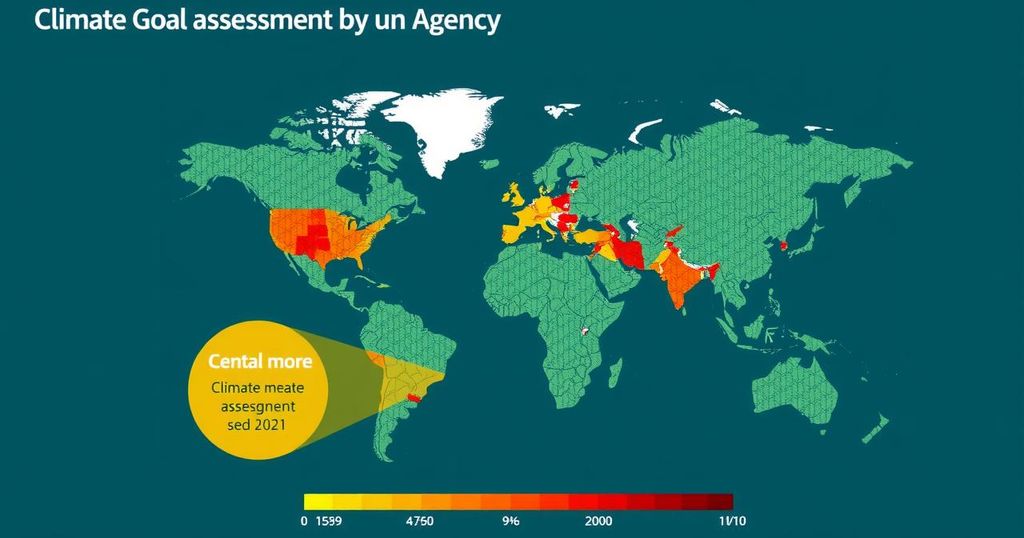Current Climate Commitments Insufficient to Meet Paris Agreement Goals, UN Warns

National pledges for reducing greenhouse gas emissions are inadequate, with a projected increase in reductions reaching only 2.6% by 2030, far short of the required 43% cut to align with Paris Agreement goals. Urgent action is necessary as greenhouse gases continue to rise, reaching a record high. The upcoming COP29 climate negotiations are critical for nations to strengthen their commitments and attract necessary investment for climate initiatives.
The United Nations has revealed that current national commitments to reduce greenhouse gas emissions are markedly insufficient to prevent severe global warming. As nations gear up for forthcoming climate negotiations, the UN indicates that the existing “nationally determined contributions” (NDCs) are projected to lead to only a 2.6% reduction in global emissions from 2019 to 2030, a slight improvement from previous assessments, but far from the necessary 43% reduction needed to adhere to the Paris Agreement’s benchmark of limiting temperature rises to 1.5 degrees Celsius. This year’s report underscores the urgency for countries to submit enhanced and more ambitious NDCs before the February deadline next year. Simon Stiell, Secretary General of the UN Framework Convention on Climate Change (UNFCCC), emphasized this critical moment, stating that “Current national climate plans fall miles short of what’s needed to stop global heating from crippling every economy and wrecking billions of lives and livelihoods across every country.” In preparation for COP29, nations are encouraged to devise plans that comprehensively address necessary emission reductions while attracting diverse financing sources. Additionally, the World Meteorological Organization reported a troubling rise in greenhouse gases, marking a record atmospheric concentration of carbon dioxide at 420 parts per million, representing an 11.4% increase over the past two decades. The rising levels are attributed in part to severe wildfire seasons, particularly in Canada, which have drastically increased carbon emissions. These developments pose significant risks, as the Secretary General of the WMO, Celeste Saulo, noted, “These are more than just statistics. Every part per million and every fraction of a degree temperature increase has a real impact on our lives and our planet.”
The ongoing climate crisis necessitates urgent action from nations globally, particularly in terms of curbing greenhouse gas emissions to mitigate impending disastrous consequences of climate change. The United Nations plays a pivotal role in assessing national commitments under the Paris Agreement, urging countries to enhance their pledges to meet scientifically determined targets. The recent findings illustrate a stark gap between current efforts and the ambitious climate goals necessary to avert catastrophic global warming, drawing attention to the implications of insufficient climate action. With greenhouse gas concentrations reaching unprecedented levels, these assessments highlight the immediacy of the global response required to address and counteract these trends.
In conclusion, despite slight improvements in projected reductions in greenhouse gas emissions from national pledges, the current commitments remain significantly inadequate to meet the essential targets of the Paris Agreement. Urgent action is required, as highlighted by both the UN and WMO, who underscore the accelerating rise in atmospheric carbon dioxide and its potential dire consequences. As nations prepare for the upcoming climate talks, the imperative to revise and enhance climate action plans is more pressing than ever to ensure a sustainable future.
Original Source: kfgo.com






